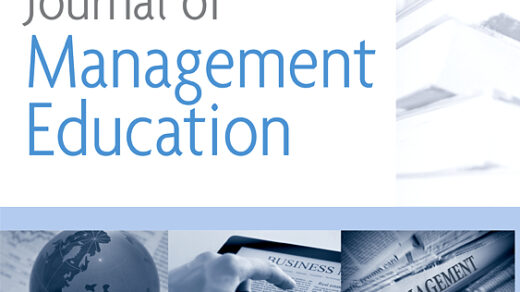An edited volume by
Dirk Ifenthaler (University of Mannheim, Curtin University) and Sabine Seufert (University of St. Gallen)
to be published by Springer, Cham
Introduction
A significant finding produced through the scientific discourse on lifelong learning is that learning is not only focussed on learning at school and applying that knowledge at the workplace. In this regard, lifelong learning can take the form of formal, non-formal, or informal learning and is embedded in our daily lives. Hence, this perspective places interest of researchers on learning at the workplace (Ifenthaler, 2018). Research on learning at the workplace significantly grew over the past few years (Malloch et al., 2011).
Work-based learning is regarded as an opportunity for developing workplace competencies and promoting productivity of personnel. Other conceptualisations include learning about work, learning through work, and learning atwork (Malloch et al., 2011). Over the past 20 years, the research community grew rapidly and produced thousands of studies focussing on issues about learning at the workplace. Significant contributions focussing on lifelong learning and workplaces emerged in the United States (Marsick & Watkins, 1990), Australia and UK (Billett, 2002; Boud & Solomon, 2001), as well in continental Europe (Achtenhagen & Beck, 1997; Billett et al., 2014).
One trending theme within research on learning at the workplace is an emphasis on artificial intelligence (AI) (Seufert et al., 2021). The substitution of work by machines dominates the on-going discussion combined with the question of the extent to which occupational profiles are affected by automation. Equally important is the question how learning at the workplace will be supported through AI. Instead of the replacement and substitution by technology and automation, it is becoming increasingly important to better understand systems and approaches in which educational stakeholders and AI tools build upon each other’s complementary strengths to achieve educational outcomes and/ or improve mutually (Meier et al., 2021).
With this edited volume it is thought that deficiencies existing in the literature on artificial intelligence education (AIE) in the context of work can be eliminated. The tentative topics in the book are as follows:
- Supporting formal and informal learning through AI
- Human-machine collaboration for learning at the workplace; potential of human-AI interaction in professional and vocational education contexts, design, use, and evaluation of human-AI hybrid systems for learning;
- Intelligent and Interactive Technologies for Learning: Natural language processing and speech technologies; Data mining and machine learning; Knowledge representation and reasoning; Semantic web technologies, e.g. chatbot-mediated learning, conversational learning,
- AI-enabled applications for skills management and personalized learning, e.g. AI-enabled coaching, personalized skill management, intelligent tutoring systems.
- Case studies for the implementation and use of AI-enabled learning and performance solutions, e.g. personal learning experience platforms, automated performance feedback.
This edited volume is part of the Advances in Analytics for Learning and Teaching book series (https://www.springer.com/series/16338).
Call for Proposals
Prospective authors (co-authors are welcome) are invited to submit a chapter proposal, including title, authors, affiliations, abstract describing the content of the chapter (max. 300 words), five keywords, three key references and a description of how the chapter fits the theme of the book (see above), no later than 31 October 2021 (2nd Call). Please submit the chapter proposal as PDF document including all required information using the online submission form: https://aiecw.ifenthaler.info
The proposed chapter should be a previously unpublished work. Upon acceptance of the chapter proposal, the chapter should be completed no later than 31 January 2022. Contributions will be blind reviewed and returned with comments by 15 March 2022. Finalised chapters are due no later than 15 May 2022. Guidelines for preparing chapters will be sent to authors upon acceptance of the proposal.
Timeline
The following represents a timeline for completing the edited volume:
- 31 October 2021: 2nd CfP – Proposal due including title, authors, affiliations, abstract, keywords, references, theme
- 15 November 2021: 2nd CfP – Notification and additional information for accepted authors
- 31 January 2022: Draft chapters due
- 15 March 2022: Chapters returned with reviewers’ comments
- 15 May 2022: Final chapters due
Please use the following link for your inquiries and submissions: https://aiecw.ifenthaler.info
References
Achtenhagen, F., & Beck, K. (1997). Welchen Standards sollte eine Ausbildung von Berufsschulleh-rern genügen? Zeitschrift für Berufs- und Wirtschaftspädagogik, 93, 535–538.
Billett, S. (2002). Workplace pedagogic practices: Co-participation and learning. British Journal of Educational Studies, 50(4), 457–481.
Billett, S., Harteis, C., & Gruber, H. (Eds.). (2014). International handbook of research in professional and practice-based learning. Springer.
Boud, D., & Solomon, N. (Eds.). (2001). Work-based learning: A new higher education? McGraw-Hill Education.
Malloch, M., Cairns, L., Evans, K., & O’Connor, B. (Eds.). (2011). The SAGE handbook of workplace learning. Sage.
Marsick, V. J., & Watkins, K. E. (1990). Informal and incidential learning at the workplace. Routledge.
Meier, C., Seufert, S., Guggemos, J., & Spirgi, J. (2021). Learning organizations in the age of smart machines. Fusion skills, augmentation strategies, and the role of HRD professionals. In D. Ifenthaler, S. Hofhues, M. Egloffstein, & C. Helbig (Eds.), Digital transformation of learning organizations (pp. 77–94). Springer.
Seufert, S., Guggemos, J., & Ifenthaler, D. (2021). Zukunft der Arbeit mit intelligenten Maschinen: Implikationen der Künstlichen Intelligenz für die Berufsbildung. Zeitschrift für Berufs- und Wirtschaftspädagogik, Beiheft 31, 9–27.


